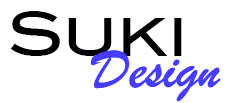Web Design Goals and Strategies
It’s very important to have a clear understanding of your goals and strategies as a first step to planning your new website. Here are some thought-provoking questions to help you to establish some direction.
What is the mission of your organization? How will creating a Web site support your mission?
What’s the underlying goal of your website?
Who is the primary audience for the Web site? Please describe your potential customers-income level, interests, gender, and age?
Regarding your primary audience, what are their personal goals? What motivates them? What are their common behaviors? Can you help to resolve any problems for them?
What do you want the audience to think or do after having visited your site?
What is there about you and your background that sets you apart for a special (niche) group of potential customers?
What problems do your prospects have that your business solves?
How can your particular work background help prospects, compared to others in your industry? What’s special about your work experience?
Are you planning to do online sales? If so, what is the product, and how many items do you want to sell online?
If you’re planning to sell online, are you set up to accept credit cards?
How much time will you be able to spend online, responding to inquiries that come in via your website-once a day, several hours a day?
If you were using a search engine, what words or phrases would you use to find your site? Which of these words or phrases is most important? Second? Third?
Other than what search engines will produce, what methods do you have in mind to spread the word about your website?
How will you measure the success of your site?
Once your website is completed, how long do you think it will be before you begin
To bring in significant business from the website?
How do you plan to encourage repeat visitors and referrals?
What is your budget for the site?
Design Questions:
In addition to your goals and strategies, it is important to have an idea of what design styles you have in mind for your website. In the web design process, the more specific you are about your design preferences, the more informed your web designer will be to meet your expectations and be able to customize your website’s design.
Approximately how many pages will the site contain? About, Contact, Services, News, Blogs, Testimonials, etc…
Are there special features about your website to engage your audience?
Where is the website content coming from?
Have you previously used a content management system?
Does your company have a brand look covering things like colors and fonts? Do you have a logo?
Do you have a slogan or tagline that clearly describes what you offer in terms of benefits or features?
Do you have any original photographs, or do you plan to use stock photography?
Do you need other marketing collateral items such as business cards or stationary that may need to be redone to match new website design?
Do you want to add video/audio files to the website?
Who are the decision makers on this project? What is the turnaround time for making a decision?
Please list the names of five other sites that you like. Why are they attractive to you?
Production Questions:
Don’t forget that the success of your website is also driven by the quality of the content provided and featured. This takes time to establish if done properly. The scope of your website may be established by answering a few of these questions.
Do you have the content ready for your site?
When would you like to launch your new site?
Post Launch Questions:
Creating your website is just the beginning of your online presence. You must also actively be involved with promoting your website once it is launched. Here are some questions to help you think about your website’s success and future beyond initial creation.
Do you need help updating and maintaining your website?
How will you adequately maintain the finished site?
Do you need graphics created for promoting your business online via social media, email blasts, blogs, or flyers?
